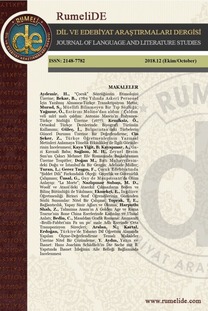شعر الحكمة عند يحيى بن الحكم الغزال
التعبير عن الحياة والفلسفة والحكمة في القصائد لايمنع الشاعر من الحديث عن كل ما هو غريب من تصور الإنسان للتعقيد المادي للحياة مع الإكثار من مخاطبة العقل وتحكيم المنطق عند تقديمه للحلول الاجتماعية في قصائده المختلفة, على الخصوص التي تتناول النقد الاجتماعي. فالبعد الحقيقي والعميق لقصائده الفلسفية تتضح في كثير من الأحيان عندما يقدم الشاعر على معالجة مشاكل المجتمع. وأنَّه كان صريح ا وواقعي ا وصادق ا في اعترافاته. ولقد جعل كل خبراته في الحياة والمجتمع في مجموعة من قصائده الزهدية التي نظمها في المرحلة الثالثة من حياته. و يمكن أن نقول أن الشعر كان يمثل الحياة الحقيقي للغزال ولقد أصبح يجمع بين هموم الذات وهموم الجماعة ، يروم كشف الواقع واستشراف المستقبل متنقلا من التفسير إلى التغيير. وبمعنى آخر، لقد أصبح وعي الشاعر بالذات وبالزمن وبالكون مرتبطا بوعيه بالجماعة، ومتضمن ا له. وماكان لشيء من ذلك أن يحدث لولا وعي الشاعر بالحياة وفلسفة العيش والتعايش التي يرمز إليها برمز واحد، ذي طابع شمولي، هو رمز الموت الذي يعني موت الذات وموت الزمن الماضي بكل أمجاده والحاضر بكل تطلعاته سيما وإن الصراع بين الموت والحياة في تجربة الشاعر يعني في آخر الأمر الصراع بين الحرية والحب والتجدد، وبين الحقد والاستعباد والنفي من المكان ومن التاريخ
Yahya ibn al-Hakam al-Kazal and his view toward life
It is quite normal, for the poet, to express the philosophy of life and its wisdom through depicting the complexity of life in which man is living. In other word, the poet intends to present solution to Man who is confined with materialism throughout social criticism. In addition, the realistic and the profound view of life have been presented while the poet deals with social problems. In this sense, the poet is honest and realistic in his confession. In the third phase of his life, the poet composed a collection of poems which tackled with his own society as well as his experiences through ascetical poetry. Poetry, for Al-Kazal, demonstrates the real life in which he combined his personal and socialgrief. In other words, the poet becomes aware or conscious upon his self, time and universe. By doing so‚ the poet intends to say that life and its philosophy are related to each other. Death‚ for the poet‚ means the dead of soul and past time. Thus‚ the struggle between life and death in his poetical experiences means the struggle between freedom‚ love, hostility and slavery, expatriation from place and history on the other hand.
___
Abu Fazıl İbrahim, Muhammed (1985). Divanü’n-Nabiga ez-Zübyani. 1.Baskı, Kahire: Darul’l Ma’rifa.Abu’l- Haşab, İbrahim Ali (1970). Tarihu’l-Edebi’l-‘Arabî el-Endelüsî. Kahire: Daru’l-fikri’l-Arabi
Atik, Abdülaziz (1976). Edebi'l-'Arabî fi el-Endelüsî. Beyrut: Darul el-Nehza el-Arabî.
Behçet, Müncid Mustafa (1988). Edebü'l-Endelüsî min Fethi hatta sukûtî Granadatu. Musul: Daru’l- Kutup.
el-Avsi, Hikmet Ali (1987). Fusulûn fi’l-Edebu’l-Endelûsi fi Karneyin el-Sani ve’l-Salisi’l-Hicreti. 5. Baskı, Bağdat: Babil.
el-Bendak, Muhammed Salih (1979). Yahya bin Hakem el-Gazal Emirü’ş-Şuara el-Endelûs fi karni’ssalis el-hicri. 1.Baskı, Beyrut: Daru’l-afaki’l-cedidetun.
el-Dayye, Muhammed Razvan (1993). Divanu Yahya bin Hakem el-Gazal. Beyrut: Daru’l-fikri’l-muasir.
el-Fahuri, Hinnal (1960). Tarihu’l-Edebi’l-‘Arabî. Beyrut: Polisiyye.
el-Makkari el- Telmesani, Ahmet bin Muhammed (2008). Nefhu’l teyip min husun el-endülüs el-ratiyip. Beyrut: Daru’s-sadr.
el-Rukabi, Cevdet (1970). Fi’l-Edebu’l-Endelûsi. 3.Baskı, Kahire: Daru’l-Ma’rif.
el-Zeyin, Ahmet ; Abu’l-Vefa, Mahmut (1985). Divan el- Hazeyliyin. Kahire: Daru’l-Kavmiyye.
Heykel, Ahmet (1985). el-Edebü’l-Endelusî mine’l-Fethi ila Sukuti’l-Hilafe. Kahire: Daru’l-Ma’rif.
Muhammed, Muhsin İsmail (2003). es-Sure’ş-Şaariye fi Şiiri Yahya bin Hakem el -Gazal el-Endelusi, (Granada: Granada üniversitesi,).
- ISSN: 2148-7782
- Yayın Aralığı: Yılda 6 Sayı
- Başlangıç: 2014
- Yayıncı: Yakup YILMAZ
Sayıdaki Diğer Makaleler
Türkçe ve Fransızca yazışma metinlerinin çeviri yönünden incelenmesi
Hint üslubunda yabancılaştırma
Cerrah Mehmed’in tıbba dair risalesi
Orhun Yazıtlarındaki atasözü ve deyimlerin günümüzdeki karşılıklarına yönelik inceleme
Türk mutfak kültürünün şiire yansıması bağlamında Ravzî’nin pilav kasidesi
Eski Uygurca Uṣṇīṣavijayā-nāma-dhāraṇī üzerine
